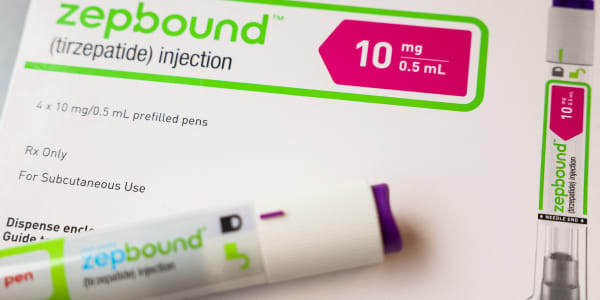If you want to solicit a furious stare from a doctor, ask them about their electronic medical record systems.
Studies have shown that electronic health records are directly attributable to the growing problem of physician burnout because of the time spent filling out fields in these systems for hours, even after a grueling day of seeing patients. Even more troubling, doctors are still struggling to access medical information about their patients, particularly if that patient was seen at a hospital or clinic that uses a different medical record vendor.
This is a problem that could have been solved years ago.
In 2009 federal policymakers set aside about $35 billion in taxpayer revenue to digitize paper-based systems. The hope was to make it easier for doctors to access their patients' medical histories in a few clicks. And by moving clinical information from paper to an electronic format, researchers could use that information to better understand human health.
A number of medical record companies blossomed, in large part because hospitals needed a vendor to manage their patients' medical information. Rather than build technologies that would be interoperable, many of these companies built vast empires by hoarding that information.
"It's almost unconscionable," said Dr. Julia Adler-Milstein, an associate professor and director of the Center for Clinical Informatics and Improvement Research at UC San Francisco, who has studied the problem for years. "The government spent billions digitizing records, but patients are still experiencing breakdowns in accessing their medical record in 2020."
Today, in the midst of a major health crisis, there are still major challenges for doctors to access patient records.
When Dr. Vincent Rajkumar, a Minnesota-based oncologist, hears from a patient who sought care at a hospital that uses a different medical record system, he knows it'll take a lot of work. He'll typically work with his patients (who by that point usually have been diagnosed with cancer) to call up their previous hospital and/or clinics to ask for the records. These records will often arrive in a PDF format. Rajkumar will then manually upload them, a process that could lead to delays in making vital treatment decisions for his patient.
Many doctors believe that Epic could be doing more to solve the problem, but its CEO Judy Faulkner told CNBC at the Healthy Returns virtual summit earlier this week that it's a challenge when other vendors don't want to interoperate.
Faulkner told CNBC's Bertha Coombs that Epic was one of the "originators" of interoperability. Faulkner said that in the early 2000s she heard about a patient that her husband — a doctor — was treating. The patient had left his care and moved to another city. That hospital couldn't easily access her records, and she died.
And he (Faulkner's husband) kept saying, "If they had had her record, they would have known what to do. It was easy."
Faulkner described facing institutional resistance from the powers that be, including trade associations that oversee the various vendors, but said she moved ahead regardless with an interoperability framework for hospitals using Epic.
And doctors agree that it has gotten easier to share records with other hospitals using Epic.
"It's been a night-and-day improvement on that front," notes Rajkumar, who's worked with Epic systems for several years. "If your patient is coming from another site that has Epic, I can see everything immediately — even labs done yesterday."
Not a solved problem
But the medical records interoperability question is by no means a solved problem.
It's still a challenge for patients to freely move their records between systems, and data-blocking is still a routine occurrence. To combat that, the Department of Health and Human Services recently finalized a rule that aimed to make medical records accessible through application programming interfaces, or APIs. The rule is also designed to make it easier for hospitals to share patient records with other medical offices or hospitals.
Epic initially publicly opposed that rule, pointing to patient privacy holes, but the legislation passed shortly before the pandemic. In a statement, the company later clarified that it felt the government "listened carefully" to its concerns, and that it would support the goal of "putting Americans in control of their health information."

Portions of the rule now have been delayed to make it easier for providers in the midst of the coronavirus. Once the bill does move forward, it could take several years for the full brunt of the changes to take effect.
Patient groups and advocates largely have rallied behind it. For them it's a huge undertaking to request their medical information and have to carry it around in paper bags or on CD-Roms. Before she passed away earlier this year, serial entrepreneur and cancer patient Leila Janah advocated for medical record interoperability, noting that in her case she had to fly to a cancer conference to get all of her oncologists to look at the same source of "ground truth."
The rule is largely designed to make it easier for patients to access their own records and share that with a hospital or app developer. But doctors say that it still remains a big challenge for hospitals to share data with hospitals using any other system that isn't Epic. Or really for any two different vendors, Epic or otherwise, to connect.
Faulkner noted at the Healthy Returns event that other vendors could, in theory, connect to the Epic system.
"We can't send a fax to someone who doesn't have a fax machine, so you can't interoperate with someone who doesn't interoperate," she said. "Well, we got frustrated with not being able to interoperate with a health system that couldn't interoperate. So we said, 'Let's stop thinking of that as an excuse, they can't interoperate, and figure out what we can do to make it — them interoperate.'"
Epic has a tool called Share Everywhere to allow other systems to connect into Epic, she said. But doctors stress that it remains a big challenge to do that in practice.
"It takes gymnastics to get an Epic system to talk to a non-Epic system," said Aaron Miri, the chief information officer at Dell Medical School and UT Austin.
Miri said one of the big remaining challenges is that there's no unique number or code to identify a specific patient. So an Aaron Miri in another vendors' system could be a different Aaron Miri. Figuring that out creates a headache for hospitals and delays in accessing the records. "It gets real complicated quickly," he said.
Hospital execs like Miri say they are desperate for the situation to change, but it hasn't yet because of financial incentives.
"I think it'll continue until there's strong enforcement and some kind of unique way to identify a patient," he said. "The reality here is that your medical information is big business — and it should be big business."
Why it matters
The interoperability gaps are a big problem for doctors. But why does it matter to consumers?
Here's a small sampling of the problems caused by the lack of interoperability. All of that adds complexity and cost to an already overburdened health-care system.
- Physicians often find themselves ordering duplicate tests, which is a hassle for patients and a major source of unnecessary costs.
- Patients might see delays in care as their doctors try to aggregate their medical information.
- It keeps patients feeling captive in a system, because it's a burden for them to go to another hospital that uses a different medical record system.
- Electronic health record vendors can also charge more to their clients, namely in the form of fees and services.
- It burdens physicians, who should be concerned with treating their patients.
When doctors are spending time tracking down medical information, they should be able to access automatically or they can't properly manage their patients' care.
That's particularly problematic during the coronavirus pandemic, when many physicians are overwhelmed with cases and need to access the patients' medical information quickly.
It also slows down public health research, as officials need access to relevant clinic information about the Covid-19 patients — and not just the report on whether they have been diagnosed or not.
Still, there's some reason for optimism, health technologists say.
There are now standardized application programming interfaces, or APIs, that the industry has rallied around that make it easier to share clinical data with patients.
Dr. Kenneth Mandl, who directs the Computational Health Informatics Program at Boston Children's Hospital, has been working on those technology standards for years. The APIs, including Fast Healthcare Interoperability Resource, now have been baked into government regulations and are adopted by technology companies like Apple.
They are designed to provide some structure and information contents for health data, as it gets shared between hospitals. The goal is to make it easier for developers to build applications that allow access to health data — with patients' consent — no matter what health record system the hospital uses.
"We've at least solved a portion of the interoperability problem," he said. "There's more to solve to make it really work as a system, but with interoperability we are very far along a good path."






